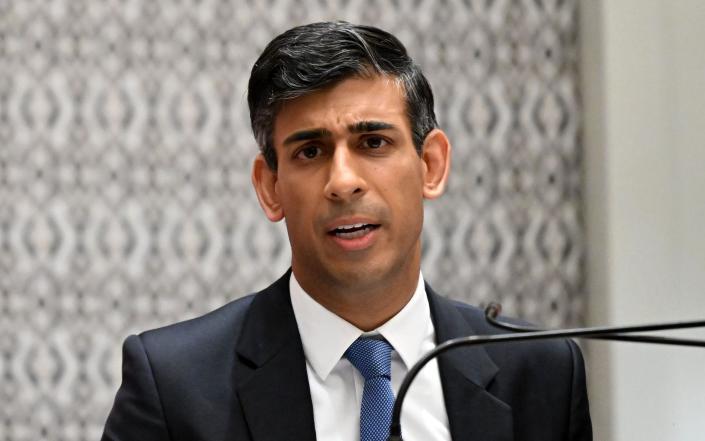
It had been billed as the Prime Minister’s most highly anticipated meeting at the G20 – face-to-face talks with Xi Jinping that were set to rework Britain’s testy relationship with China.
Yet news of the last-minute cancellation of Rishi Sunak’s tête-à-tête with the Chinese president – the first ‘bilat’ to be held in half a decade – should serve as a reminder that when it comes to dealing with Beijing, western leaders tend to be damned if they do and damned if they don’t.
Although a Downing Street spokesman insisted the meeting was no longer happening because of the movements to schedules caused by Tuesday night’s missile strike in Poland, the suggestion is that it was pulled by China, having been requested by the British.
Whatever the truth of the cancellation, Mr Sunak now finds himself in the invidious position of appearing to be snubbed by the leader of the world’s second-biggest economy – while angering his own backbenchers for agreeing to the meeting in the first place.
To make matters worse, his position on China now looks confused and conflicted at best.
‘Chinese technological aggression’
During the Tory leadership campaign, Mr Sunak appeared to play to the grassroots by describing China as “OUR #1 THREAT” in leaflets while promising to close down all of China’s 30 UK-based Confucius Institutes.
He also pledged a “Nato-style” alliance of countries would be set up to counter “Chinese technological aggression”, with MI5 given a bigger remit to support British businesses from IP theft and “key British assets” would be protected from Chinese takeover.
When it came to what he described as “China’s nefarious activity and ambitions,” the Prime Minister insisted sternly: “Enough was enough.”
Yet the hastily arranged talks in Bali suddenly spoke to a softer approach to the Communist state by No 10, with Mr Sunak declining to endorse his predecessor Liz Truss’s push to relabel China a “threat”, rather than simply a “systemic competitor”, in the UK’s formal foreign policy strategy documents.
His once hawkish stance appears to have been replaced with a geopolitical diplomacy that former Tory leader Sir Iain Duncan Smith has likened to a form of “appeasement”.
Having ordered Treasury officials to revive the UK-China Economic and Financial Dialogue as Chancellor, after the trade summit was put on hold in 2019 over rising tensions in Hong Kong, it seems Mr Sunak has reached out the hand of friendship to China, only to have ended up having it slapped.
The Prime Minister may be minded to take a lesson from Chairman Mao’s red book: “Despise the enemy strategically, but take him seriously tactically.”




